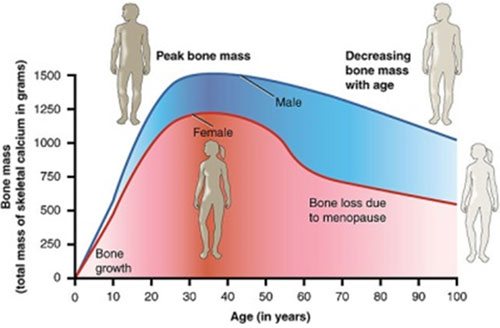Signs of Growth Hormone Deficiency in Adults
The signs of growth hormone deficiency in men and women over thirty can be deceiving. This hormone plays so many roles in the body that one person may find that physical changes such as weight gain, muscle loss, and wrinkles are the most obvious issues while another person may discover that decreased memory, reduced drive and productivity, and low libido are the biggest concerns.
These variances can make it hard for a general physician to diagnose the signs of growth hormone deficiency in adults. Lack of energy may lead to a discussion about vitamins or blood testing for anemia rather than hormonal imbalance. A hormone replacement therapy specialist has the necessary training and experience to recognize the signs of decreasing hormone levels in adults as they age. The warning signs are picked up on quicker, often cutting down on the cost and time it takes to determine a diagnosis and treatment plan
Because the signs of human growth hormone deficiency continue to worsen with the passing of time, it is crucial to seek the expertise of an HRT specialist to guard against the decline escalating into any of the following conditions:

- Cardiac disease
- Dementia
- Osteoporosis
- Atherosclerosis
- Stroke
- High blood pressure
- Obesity
- Diabetes
- High cholesterol
If left untreated, adult growth hormone deficiency can take away one’s independence in later years, especially when dementia or osteoporosis make it impossible to lead a productive and happy life.
Growth Hormone Deficiency Symptoms
The warning signs and symptoms of growth hormone deficiency in adults may also be confused with other hormonal imbalances or medical conditions. That is why comprehensive blood analysis is a must before beginning treatment.
Here is a breakdown of the symptoms of growth hormone deficiency in adults:
- Physical Symptoms
- Changes in body composition – increased fat and decreased lean muscle
- Reduced bone density and joint pains
- Lethargy and lack of energy and stamina
- Sluggish metabolism
- Thinning or loss of hair
- Decrease in collagen resulting in sagging skin, wrinkles, age spots, and cellulite
- Reduced insulin sensitivity
- Trouble seeing clearly at night
- Brittle nails
- Sexual decline and loss of pleasure
- Erectile dysfunction
- Elevated LDL cholesterol and triglyceride levels
- Sensitivity to changes in temperature
- Cardiac problems
- Frequent or prolonged illnesses
- Long healing time from injuries
- Decreased strength and exercise capacity
- Internal organ shrinkage
- Mental Symptoms
- Difficulty with concentration
- Loss of focus
- Trouble with memory recall
- Impaired mental functions
- Slower problem-solving capacities
- Inability to learn new tasks
- Loss of productivity
- Emotional Symptoms
- Depression
- Mood swings
- Anxiety
- Stress
- Irritability
- Withdrawn from social life
- Frustration
- Poor self-image
- Negative outlook for the future
- Reduced drive
- Lack of motivation
Trouble sleeping is another one of the signs and symptoms of growth hormone deficiency that many adults face each day. From insomnia to frequent waking, this issue can run the spectrum and also lead to sleep apnea which worsens with the gaining of excess weight.
Aside from the specific symptoms listed above, you may notice that you no longer enjoy outside activities or hobbies. If your work performance is suffering or you no longer find your job stimulating even though nothing has changed, or if your family or friends are complaining that you no longer engage in fun activities, it may be time for GH deficiency blood testing. Contact the hormone specialists at Kingsberg Medical for a confidential consultation at no charge. Growth hormone decline is reversible, and we can help.




















